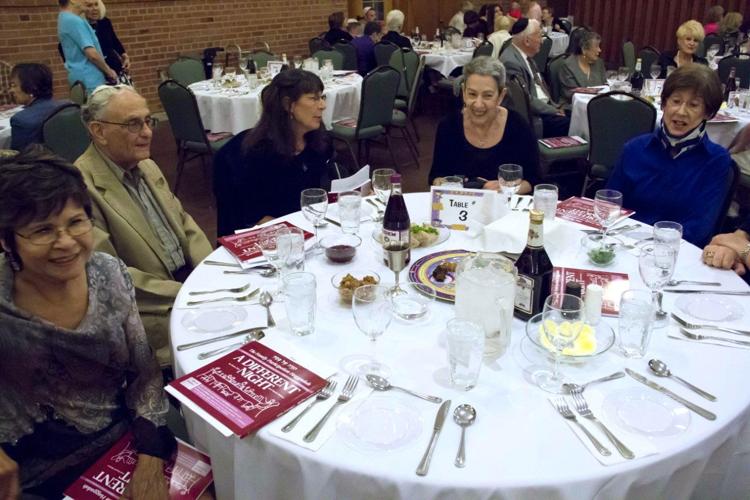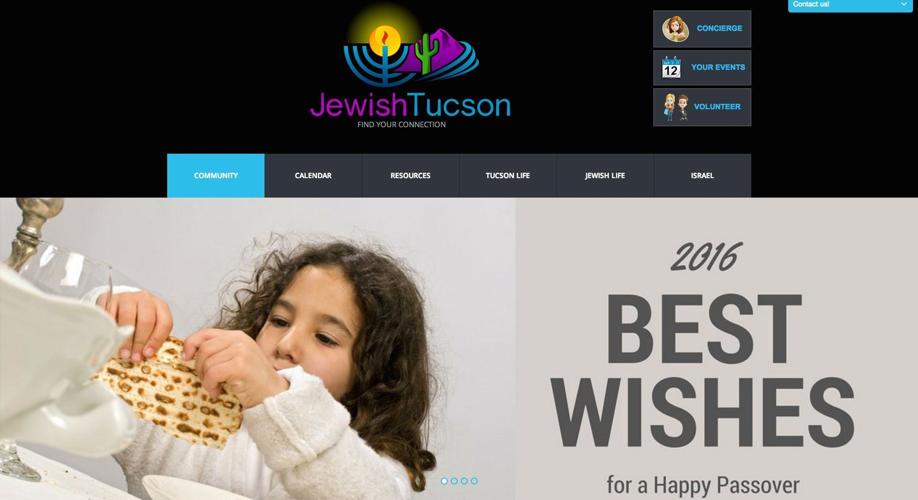For questions about Tucson’s Jewish community, Ori Parnaby is the go-to person.
For the last few weeks, Jewish Tucson’s concierge has been fielding questions about seders — the ritual Passover meal — and where to find foods that are kosher for Passover in anticipation of the holiday’s start Friday evening.
“Each congregation does something unique (for Passover),” Parnaby says. “And it’s my job to help people find one.”
In September 2014, Parnaby settled into her role as the concierge for the website Jewishtucson.org. She has helped newcomers find synagogues, received a request from an inmate for a Jewish calendar and figured out where to put a donor’s collection of books on Judaism. In a sense, she is the hub for all things Jewish in Tucson.
The website grew out of the Jewish Community Roundtable, a 2013 initiative by the Jewish Federation of Southern Arizona to bring together rabbis and leaders of organizations such as the Jewish History Museum, the Tucson Jewish Community Center and the University of Arizona Hillel Foundation, to name a few.
Here, people can find information about the institutions that make up the local Jewish community, events going on throughout the city and resources specific to their demographic. It’s all in one place.
During holidays, in particular, the site and its concierge can help people connect to others who share their identity and heritage.
“Those people who have sought to enslave and oppress and destroy the Jewish people were not selective,” says Rabbi Israel Becker of Congregation Chofetz Chayim, 5150 E. Fifth St. “They chose a Jew simply because they were Jewish ... so a holiday like Passover reminds all the Jews of a common thread that they share together.”
Passover begins the evening of Friday, April 22, and lasts through the evening of Saturday, April 30. During the holiday, Jews recall the ancient Israelites’ escape from slavery in Egypt to freedom, as told in the book of Exodus in the Hebrew Bible.
To remember the story, many Jews gather in homes for seder meals on the first two nights of Passover.
“Holidays are what keep us together as a community and are what make us feel connected to our ancestors and family, ... not only in Tucson but around the world and in Israel...” Parnaby says. “We want to share that with our community.”
Yet not everybody is able to attend or host a home seder.
That’s where Parnaby steps in.
“This website presents an array of seders from Orthodox to the Secular Humanists, who will just look at the values involved in why we celebrate Passover and relate that to their own experiences and journey,” says Beverly Sandock, strategic planning associate for the Jewish Federation of Southern Arizona and web administrator for the site.
A roundup of Passover events on the site presents a variety of choices, from last week’s chocolate seder at the Tucson Jewish Community Center to traditional seders, to a Passover walk in the desert with Rabbi Samuel Cohon of Temple Emanu-El, 225 N. Country Club Road.
“One of our goals became to strengthen our community through technology in order to engage multiple groups of people,” Sandock says. “We found that our community is vibrant and diverse and rich in activities and programs, but frequently, people didn’t know that they existed.”
Cohon, one of the rabbis on the Jewish Community Roundtable, says that while many individual congregations have done outreach of their own, this kind of collaboration indicates a desire to make the Jewish community as a whole more accessible.
“The synagogues are different and come from different walks of religious life but have the common thread of kindness and generosity that is very much a part of Jewish life,” says Becker, also part of the roundtable.
At the UA Hillel Foundation, Amalia Mark, the director of Jewish student life, sees students who don’t understand their heritage and “see Passover as a week without bread instead of a time to think about what we are enslaved to and held captive to.”
Engagement is key.
“I think there is a sad lack of Jewish knowledge and literacy,” Mark says. “It’s hard to get people to own what is rightfully theirs if they don’t know anything about it.”
Jodie Friedman, a UA senior and Hillel intern, is one of two students who will lead a seder for her peers this year. Seders usually feature traditional readings, prayers and songs. The Hillel seder will include a skit. Later in the week, students can also compete in an Instagram competition inspired by the Passover tradition of finding broken matzah. It’s another way to encourage participation.
“There are a million different ways to feel Jewish, and my job is not to tell you how that looks,” Parnaby says. “My job is to help people connect to their heritage, community and people.”





